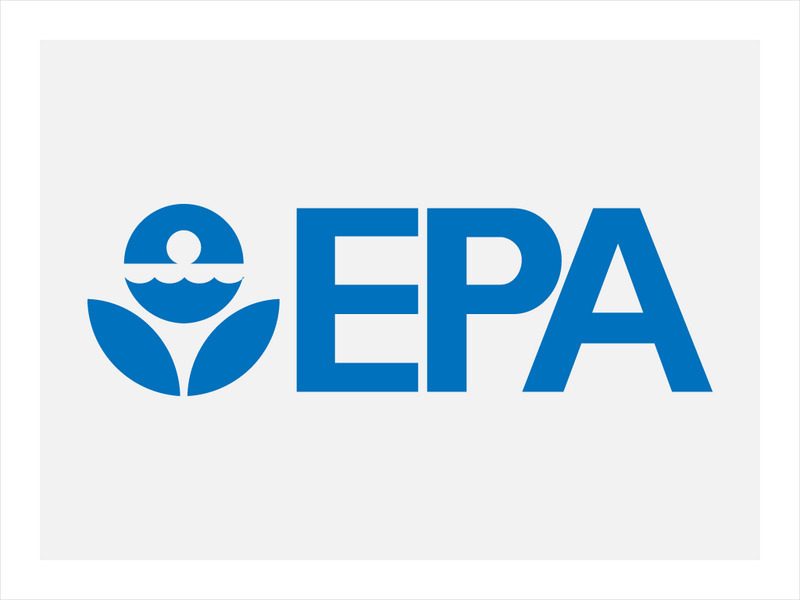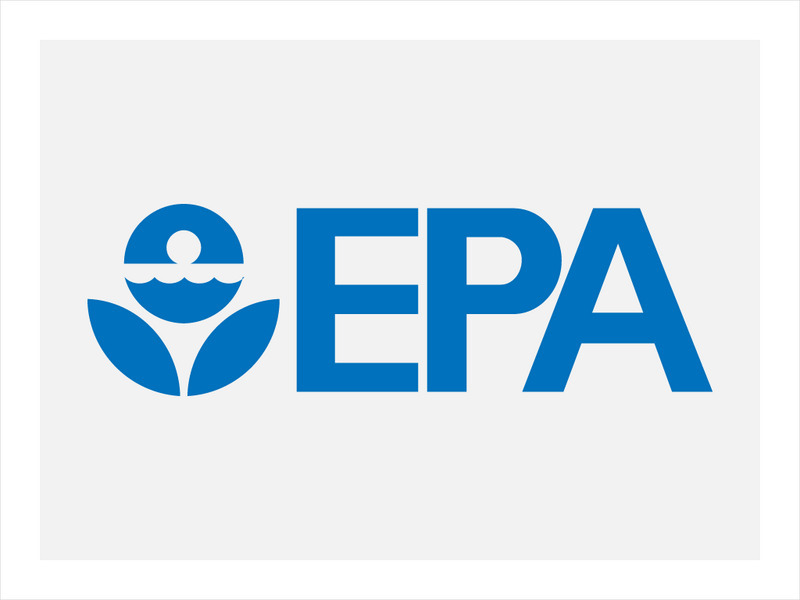US Environmental Protection Agency
Sea Level: On the Rise
With the global temperature on the rise, the effects of climate change are starting to be seen. However, many people have a difficult time conceptualizing the long-term effects, such as sea levels rising. Given an easy and effective...
US Environmental Protection Agency
Carbon Through the Seasons
Meteorologists view an animated video by the Environmental Protection Agency to learn how the carbon cycle works, and then move into groups to analyze and graph actual data of the atmospheric carbon dioxide concentration from Hawaii's...
US Environmental Protection Agency
Teach English, Teach About the Environment
Spread the message of recycling while teaching your English language learners new vocabulary and practicing verb tenses. Included here are four lesson plans for each level (beginning, intermediate, and advanced) as well as accompanying...
US Environmental Protection Agency
Types of Radiation
Learn about radiation, and what everyday items produce radiation, with a series of activities about heat transfer. Kids go over basic information about electromagnetic waves and ionizing radiation before performing several experiments...
US Environmental Protection Agency
Role of Plants in Water Filtration
Investigate the amazing ability of plants to filter contaminants from water with this series of in-class demonstrations. After placing six small, potted plants in plastic cups, different solutions and mixtures are poured into them that...
US Environmental Protection Agency
Building an Model Aquifer
With almost half of Americans relying on groundwater supplies, it is more important than ever to protect aquifers from possible contaminants. Working in small groups, young environmentalists explore this problem as they create an aquifer...
US Environmental Protection Agency
Non-Point Source Pollution
Investigate the different types of pollution that storm drain runoff carries into oceans, lakes, rivers, and streams with this class demonstration. Using an aquarium and an assortment of everyday items that contaminants like motor oil,...
US Environmental Protection Agency
Water Purification by Evaporation and Condensation
This easy-to-perform demonstration shows students how the water cycle, specifically the processes of condensation and evaporation, purifies Earth's water supply. Just mix up some water, dirt, and gravel in a glass bowl, place a cup in...
US Environmental Protection Agency
Thirstin's Wacky Water Adventure
Make a splash with young scientists as you teach them all about water using this activity packet. Thirstin, a cartoon glass of water, walks children through the water treatment process, teaches them about different sources of water, and...
US Environmental Protection Agency
A Mock Town Meeting on a Proposed Tank Farm
Intended as a follow up to the Protecting Your Drinking Water activity, young environmentalists use their assessment of the a hypothetical town's water supply to debate the installation of underground chemical storage tanks. With...
US Environmental Protection Agency
Protecting Your Drinking Water
Having a clean, reliable source of drinking water is essential for any community, but in many cases this is easier said than done. Engage young environmentalists in exploring the five factors affecting vulnerability of a groundwater...
US Environmental Protection Agency
Aquifer in a Cup
Young scientists create their very own aquifers in this science lesson on ground water. After learning about how some people get their drinking water from underground wells, young learners use sand, modeling clay, and aquarium rocks to...
US Environmental Protection Agency
Tree Rings: Living Records of Climate
Open with a discussion on weather and climate and then explain how tree rings can provide scientists with information about the earth's past climate. Pupils analyze graphics of simulated tree rings from various US locations for the...
US Environmental Protection Agency
Mapping Greenhouse Gas Emissions Where You Live
After investigating the US Environmental Protection Agency's climate change website, your environmental studies students discuss greenhouse gas emissions. They use an online interactive tool to look at data from power production...
US Environmental Protection Agency
Weather and Climate: What's the Difference?
Future weather forecasters collect daily temperatures over a period of time. Afterward, they compare their data with monthly averages, as researched on national weather websites, in order to grasp the difference between weather and...
US Environmental Protection Agency
Getting to the Core: The Link Between Temperature and Carbon Dioxide
Polar ice samples provide scientists with valuable information about the condition of the atmosphere for hundreds of thousands of years in the past. Of particular interest is the amount of carbon dioxide in the atmosphere and its...
US Environmental Protection Agency
Corals and Chemistry
After demonstrating the use of cabbage juice as a pH indicator, have your class experiment with their own breath, exhaling into the indicator, to show that carbon dioxide is acidic. As learners work, they also watch a video about coral...
US Environmental Protection Agency
Water, Now and Then
Students describe, orally or in writing, ways people have depended on water during different periods of history. This nearly 500 page document is rich with diverse lessons and activities that will transform your young learners into...
US Environmental Protection Agency
Epa: Recycle City
Explore the four neighborhoods of Recycle City to learn all the ways people there are recycling, reducing, and reusing materials. Take a look also at Dumptown, which is how Recycle City used to look, and see all the waste reduction...
US Environmental Protection Agency
Epa: Envirofacts Data Warehouse
Using zip codes, this site allows students to locate businesses in their communities that are producing wastes.
US Environmental Protection Agency
Epa: Smog: Who Does It Hurt? [Pdf]
Extensive site provides information on health effects of ground-level ozone-smog. Explains the air quality index and provides links to area ozone maps.
US Environmental Protection Agency
Epa: Epa to Launch Noise Control Program
This 1972 EPA press release described the first actions that would be made under the Noise Control Act of 1972.
US Environmental Protection Agency
Epa: The Plain English Guide to the Clean Air Act
This 27-page booklet explains the Clean Air Act using everyday English.
US Environmental Protection Agency
Epa: Water Topics
This website provides consumer information from the EPA about drinking water and water bodies.




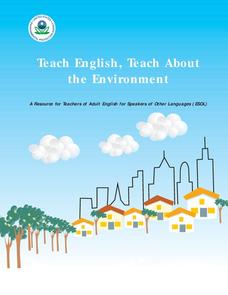







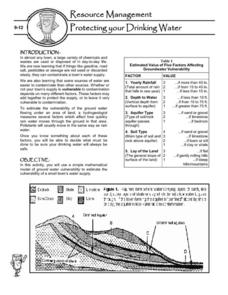

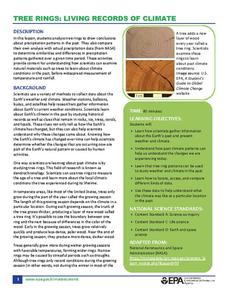
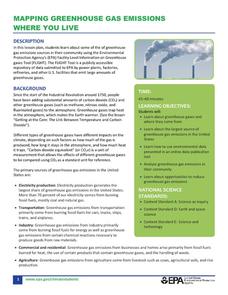




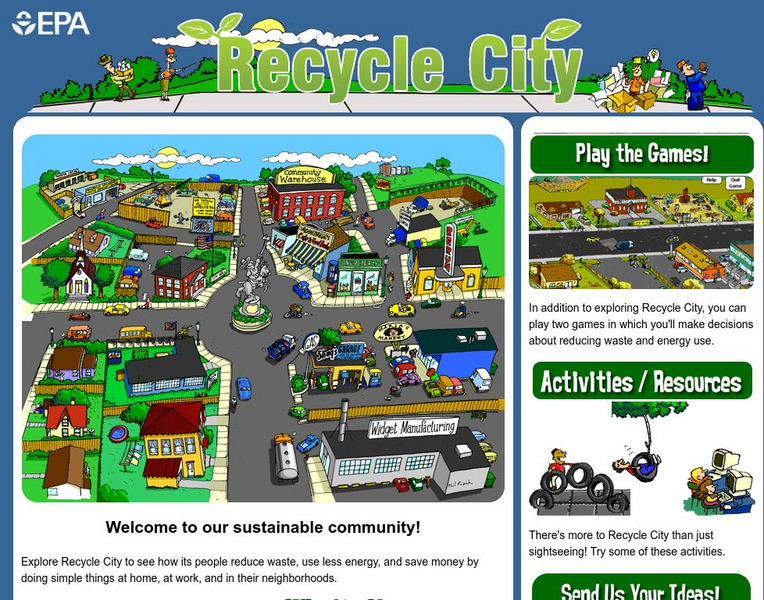

![Epa: Smog: Who Does It Hurt? [Pdf] Website Epa: Smog: Who Does It Hurt? [Pdf] Website](https://content.lessonplanet.com/knovation/original/39056-13a3ccd523a11f50e1eaae0f9b167eec.jpg?1661504046)
